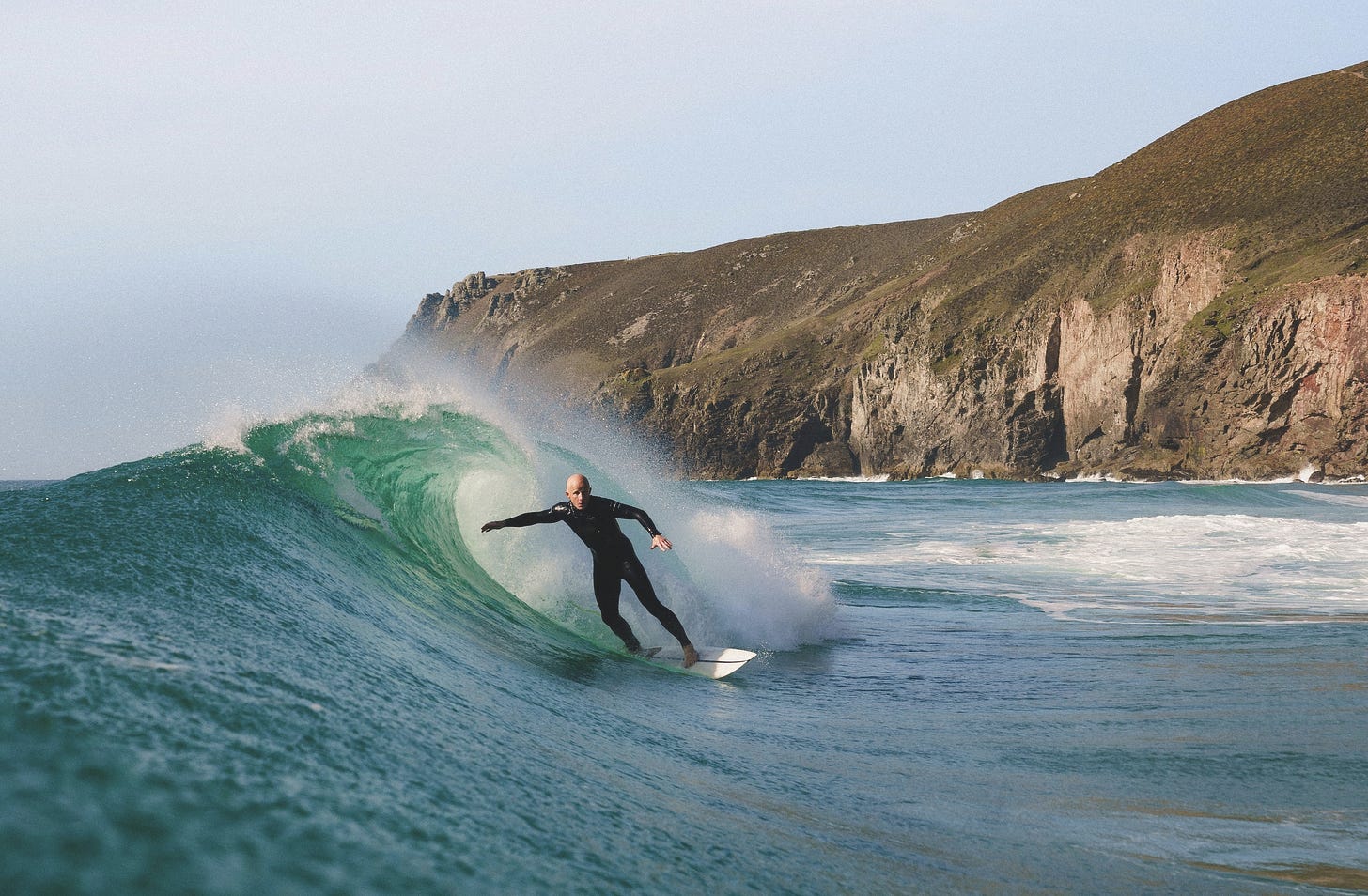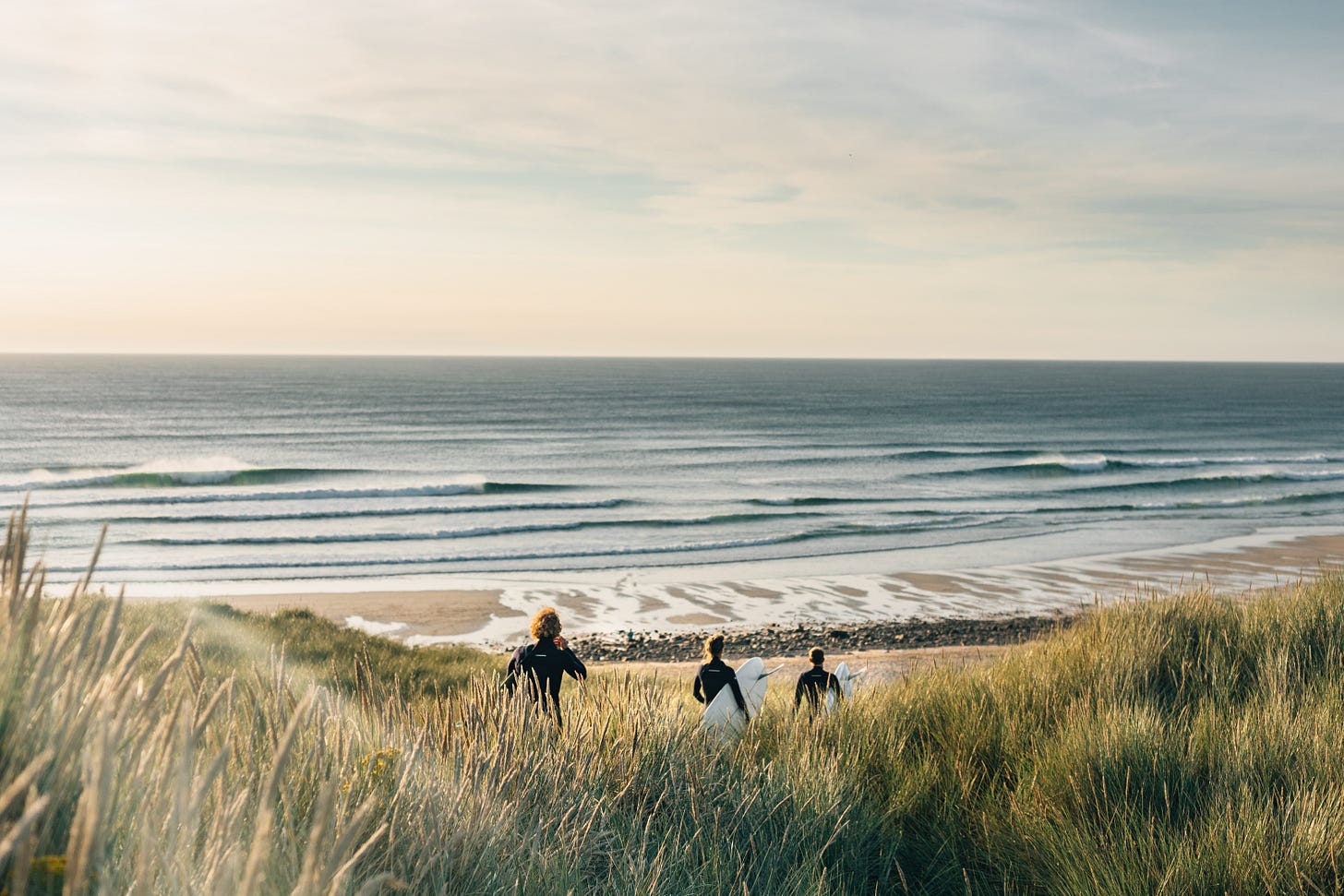Can "sustainability" actually hold us back?
Finisterre's Tom Kay argues why the inherent vagueness of "sustainability" enables slacktivism - and a pathway forward.
Tucked along the rugged cliffs of St. Agnes in Cornwall lies the headquarters of Finisterre, an outdoor brand deeply entrenched in British surf culture.
Finisterre was born in 2003 from humble beginnings - a fledgling passion project nestled above a small surf shop in St. Agnes. But inside this cramped, wind-battered space dwelt the seeds of brilliance.
Tom Kay has spent two decades fine-tuning high-performance gear for devout cold-water surfers around the British Isles. Kay himself is the embodiment of his brand, equal parts cerebral sustainability wonk and hardcore waterman, probing the fickle rhythms of North Atlantic swells. For him, the essence of responsible business has always exceeded mere sustainability.
He muses, "sustain means to maintain, and maintaining the status quo simply isn't good enough." This mindset catalyzed Finisterre's early push towards pioneering materials and methods that didn't just do less harm but actually regenerated nature and community.
The trouble with sustainability
Tom Kay worries today's notion of sustainability has degraded into an empty buzzword for brands wanting ethical cachet without effort. As he notes, "it has become a tagline for businesses to appear eco-friendly without actual change. If we settle for basic standards, we risk missing opportunities to do better."
On the surface, sustainability suggests environmental duty. But vagueness in its interpretation enables superficial messaging without accountability. Beyond cursory commitments, little incentive exists for businesses to push boundaries. It fosters a race to the ethical bottom.
Why the status quo isn't enough
Finisterre's aversion to "sustainability" stems from the sense that maintaining present-day norms should not be the end goal. Kay explains, "for Finisterre, it's about doing things better than what was done before." He sees business as a vehicle to drive positive advancement, rather than dance around minimum expectations.
Much of this traces back to Tom's formative years, immersed in the unpredictable domains of the North Atlantic. Surfing here requires commitment - braving the environment to reap sweet rewards. Tom Kay is the sort of person who views complacency as anathema to progress. In his eyes, each session offers an opportunity for refinement. And by extension, he applies the same iterative spirit to gear and, now, to commerce.
The difference between responsibility and sustainability
Where sustainability offers an ethical floor, the beauty of more responsible businesses is that they build higher ceilings. If companies remain only content with not depleting resources faster than the world produces them, then there's little incentive to push boundaries. Responsibility adopts a mindset of continuous improvement, rather than settling for minimally acceptable norms. It transforms operations from damage control to unlocking human potential. This ushers in renewal, not just stability.
Where sustainability falls short
The shortcomings of solely chasing "good enough" are philosophical and practical.
Philosophically, ambiguity fosters token messaging without accountability. When the only clear threshold is not to exhaust Earth's bounty altogether, little pull exists to rethink business models holistically. It becomes a cover for brands posing as eco-friendly for sales while avoiding real progress.
Compounding matters is over-reliance on incremental policy as a magic bullet. Regulations broadly raise collective floors, but often lack the ambition sparked by market leaders independently pushing boundaries. And in domains like apparel with convoluted global supply chains, enforcement itself proves complex at best and toothless at worst.
Ultimately, the pitfalls Tom outlines in today's notions of sustainability trace back to a deeper void - the inability of present paradigms to inspire shared purpose. Piecemeal policy and activist appeals may not suffice if they overlook why change matters across lives and generations.
Lasting transformation awaits those who illuminate how human dignity, ecology, and economy can not only coexist, but enrich one another. And in this quest for symbiosis, perhaps there lies the deepest business case yet - one etched not in feel-good slogans but in real-world impact.
The companies destined to lead this charge will likely place ethics on par with excellence, expecting one only in the presence of the other. They will reset norms by commanding mainstream appeal on merits alone while lifting the standard across industries.






